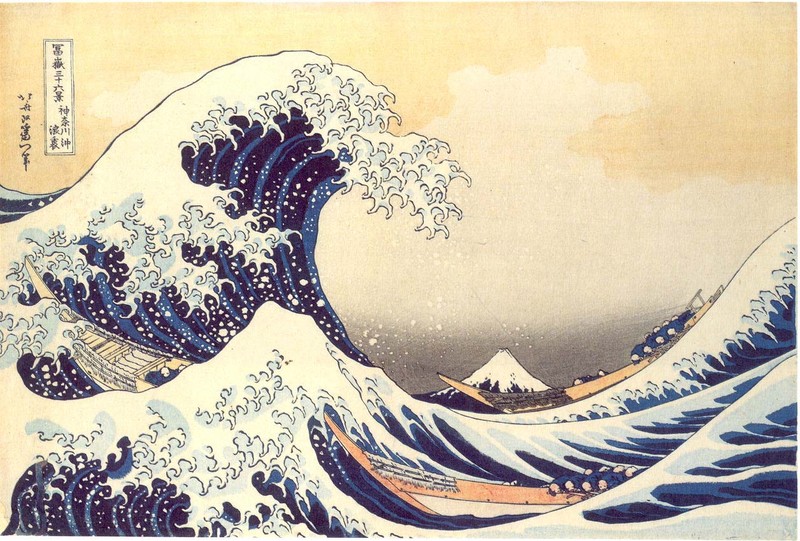Features
Memory Tapes: Absolutely Ordinary

Every time I sleepwalk to the grocery store for a gallon of milk in my pajamas, fuck “Eleanor Rigby.” Every time I wash the dishes, fuck “Eleanor Rigby.” Everytime I hydrate in a rush hour traffic jam, fuck “Eleanor Rigby.” My mantra is “fuck ‘Eleanor Rigby’,” and like any good mantra, my mind becomes fixated on the subliminal rhythmic patterns laid within its syllabic construction. With patient, musical repetition, the restlessness brought on by the self-awareness of routine dissipates and I gleefully fuck the thought of Lennon & McCartney wistfully offering humanity their sympathy through the lens of an existential ant farm. Sadness and sympathy get you nowhere. It’s why The Beatles are considered the original pinnacle of so-called youth culture. When you’re young all you want is people to cry tears for you when you’re engaged in the banality that consumes 90% of human life, because urban legend has it that you should really be out in the world being somebody. Nonsense.
Every time I wash the dishes, I feel the strings from “Eleanor Rigby” coming back into my mind and I immediately have to suppress the desire to pity myself or abandon the task altogether because of the discomfort of becoming part of a large, indistinct human ritual. When we do our daily chores, we’re reduced to nobody, and it’s a beautiful thing. Humanity fails to appreciate it, as indicated by the most popular answer to the question, “What did you do today?” – Nothing. You didn’t actually do nothing, you did what you always do or what you think all people do most of the time, and therefore don’t find it worth mentioning. We think it’s courteous when people don’t tell us about their mundane facets because it’s supposedly humble, but really we just hate hearing it as much as we hate talking about it. Yet, it’s ok to have done nothing. There’s nothing wrong with nothing. In fact, I’m willing to bet less than 10% of your whole life is worth talking about, and you define who you are based on the contents of that meager fraction. Good elevator music helps you get through the other 90%.
Jersey native Dayve Hawk’s Memory Tapes is nothing if not good elevator music. I mean that in the least derogatory way possible, because what good elevator music is theoretically supposed to do isn’t please ‘the masses’, or simply avoid offending them, but make an ordinary situation comfortable. As you hear it, you should be floating as we all we were in our mall thrift ‘90s, and therein probably lays the appeal of the nostalgic themes once present in ‘chillwave’ music. As a contemporary and forerunner of the chillwave movement (largely a forgettable and brief wet dream), Memory Tapes provided a reclusive loner’s antithesis to the Synesthesia party palettes of Neon Indian or the textural dub overload of Washed Out.
His first album Seek Magic possesses his uniquely sedate and removed, monotone falsetto. It possesses feeling, but its distance reverberates in the space created by his minimal use of sparse Asian-themed percussion and airily thin synth and keyboard lines. There’s an aquatic transience to everything, a refreshing lull that sweeps over you. Its mixture of folksy personal flourishes and techno compartmentalization creates the sort of eerie mixture of complacency and repression that defines suburban life. Under this Syd Barrett-esque wizardly deadpan, there are moments of mystical darkness and detachment. It’s a stew of positive and negative emotions simultaneously occurring to do a better job of encompassing a realistic feeling of nostalgia than pure ecstasy or indulgence might.
Following his innocuous sophomore effort Player Piano, Hawk released Grace/Confusion in 2012. The album maintains his traditionally enigmatic persona, but involves a much more ‘70s inspired palette. The songs have a looser, improvisational structure and the compositions reflect greater intricacy in sonic texture as well as melody and rhythmic movement. From the pleasant, over the treetops with a baby in a bulrush flight of “Neighborhood Watch” to the epic and medieval tinged fantasy of “Follow Me,” the album touches on everything from comforting paisley wisps to angular new wave guitars and deep, dark whirring synths. Songs like “Sheila” transition whimsically from after-hours romantic ballad to soundtrack for a bleak Northern landscape, landing somewhere between the Bee Gee’s and Meddle-era Floyd.
Although his peers promoted a largely dub and disco-inspired physical collectivism, Memory Tapes provides a cerebrally edgy, prog-rock alternative. I think in some ways, he’s far too much of a Holden Caufield figure to fit in with the rest of the chillwave crowd. Maybe that’s because he has the older, more mature temperament of a stay-at-home dad, or maybe it’s because he enjoys Jeff Buckleying his performances into an intimate coffee shop guitar and drums session even when he knows it’ll piss off all his fans. He’s not giving his mind up, he’s giving into his mind.
Where the others form this mirage of alleged activity and submit to excessive stimuli, Memory Tapes’ music submits to boredom on the strikingly quiet periphery of it all, turning introvert instead of extravert. Maybe that should be the lasting legacy of ‘being chill’. Instead of behaving like there’s so much to do and so much to see, looking back at childhood as this sensational time that we all desperately need to crawl back toward, or attempting to pacify anyone who expresses a negative sentiment about anything, we should find zen in simplicity, ease in feeling, and become indifferent to the passing of time and changing of minds like the ten billionth “Great Wave off Kanagawa.” There’s hardly anything chill about having a ‘Psychic Chasm’, and there’s absolutely nothing chill about needing one.